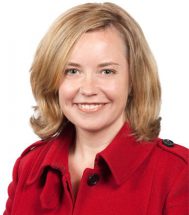Councils will have to pay more for running local government elections next year under a recommendation by the state’s independent pricing regulator.
The proposal means councils that opt to use the NSW Electoral Commission to run elections next year will pay on average 62 per cent more than they did in 2016 and 2017, with the total cost of elections estimated to come to $56.5 million.
“We recommend councils, in aggregate, pay a larger share of the efficient costs of providing local government elections compared to what they have in the past,” IPART says.
“Despite these substantial increases, IPART expects any impact on ratepayers to be modest as election costs account for a small proportion of councils’ total costs.”
It’s the first time IPART has been asked to review the cost of local elections.
IPART says the increase would ensure that councils, rather than NSW taxpayers, pay for election services. It would also open the way for more competition among election service suppliers, the pricing regulator says.
“We are proposing a pricing approach and other measures that are aimed at enhancing the scope for competition in the supply of election services, which over time has the potential to increase innovation, provide councils with more choice and reduce costs,” IPART Chair Paul Paterson said.
A huge hit to councils
Cr Linda Scott, President of the Local Government Association of NSW (LGNSW) said the increase will be a huge hit to councils.

“That’s a massive increase over four years, and it obviously will have a big impact on council budgets – particularly the budgets of smaller rural and regional councils who may not have the same rate base as our largest councils,” she told Government News.
“We definitely need competition in this area, rather than a monopoly that could lead to inefficiencies and even higher costs, and we need to ensure all election service providers operate transparently and are subject to the appropriate scrutiny.”
If the move concerns enough councils, a motion for debate in October will be put forward at the LGNSW Annual Conference, Cr Scott said.
Cutting electoral commission costs
In its draft report released this week IPART recommends a $2.6 million reduction in NSWEC costs for the 2020 elections.
The proposed 4.5 per cent reduction would result from reducing NSWEC operating costs by $8.8 million (15.6 per cent) to $47.7 million and adding $6.2 million of capital expenditure required to run the polls, IPART says.
The tribunal is seeking feedback on the recommended changes and will hold a community forum on July 2.
Dr Paterson said the introduction of cost reflective pricing would better reflect the actual costs of providing services.
“Cost-reflective prices would also help to ensure the NSWEC’s costs of administering local government elections are transparent and subject to appropriate scrutiny.”
The tribunal has also recommended reforms that would give councils more choice in how they obtain election services.
Submissions on the draft report can be made here.
Legislation removes ability of council to staff to administer their own elections
The proposal comes after the passage of new laws in NSW parliament last week banning council staff from administering their own council elections.

The amendments to the Local Government Act will remove the ability for general managers to run their own elections, instead requiring an electoral services provider engaged by the council to administer the election.
The archaic powers were most recently used by Gunnedah Shire Council in 2016, sparking concerns about the credibility of council’s result.
Greens MP David Shoebridge, who proposed the amendments in Parliament, said that allowing staff to run elections creates an obvious conflict of interest and opens up the process to misuse.
“It only takes one of these staff-run elections to go wrong and it could potentially bring the whole sector into disrepute,” he said.
“While there may be some financial savings to councils who choose to run their own election, it comes with so many risks. The least of which is having the process challenged in Court which would wipe away any costs savings immediately.”
“Allowing the staff of a council anywhere near the counting of votes or running of an election for their next crop of councillors is so fraught with conflicts of interest that it should never be allowed.”
The changes to local government laws come as part of broader reform to the Local Government Act which has also seen the cut-off date for councils to make a decision about the administration of elections next year extended.
Comment below to have your say on this story.
If you have a news story or tip-off, get in touch at editorial@governmentnews.com.au.
Sign up to the Government News newsletter.





Leave a Reply